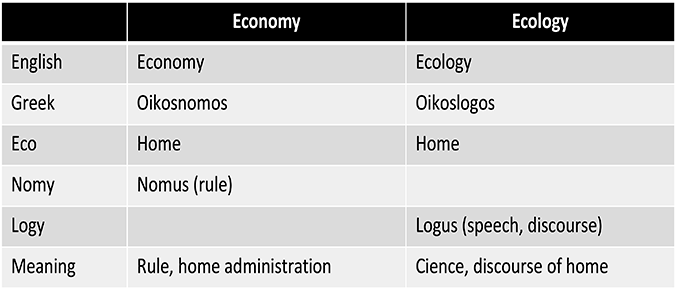This theme is related to the evolution of the way of life of the human being and the emergence of agricultural civilizations, this issue takes the priority for humanity to be able to cross the century with quality of life.
It becomes important before discussing this issue, emphasize the Triple Bottom Line or the 3 Ps (People, Profit, Planet), the base of Sustainability, as we will discuss below.
We can say that today the scenario makes us remember a certain kind of fad, something “in”, which makes us fit for an interrelationship.
The fact that Sustainable Development has its classic definition as: “Sustainable Development is one that meets the needs of today’s generations without compromising the ability of future generations to meet their own needs” reflects the Report of the World Commission on Environment and Development: Our Common Future ( http://www.un-documents.net/our-common-future.pdf ) which makes us think about the text of the Federal Constitution of Brazil of 1988.
In this way, it should be remembered that it is not a question of fashion or something not formalized in the rules of Brazilian society. On the contrary, the pillar of the Environment is explicit in our constitution.
We also talk about Triple Bottom Line, that is, what we have called the sustainability tripod. Within this argument, from John Elkington’s book, there are 3Ps (profit, people and planet), which translate into the Economic, Social and Environmental Pillars.
Ecology and Economics have always been taking great space when it comes to the environment and even economic growth.
Two words that have the same root, which came from the same language. First of all, they must be compared in such analysis that gives us a clearer view to proceed to a deeper discussion about the issues surrounding the environmental and economic pillars.
In the figure below, for a better understanding, I’ve included a table that seeks to synthesize and simplify these two words.

Before we begin to talk about the Economic Pillar, it is necessary to remember that this science tries to balance scarce resources to unlimited needs. This definition brings up the problem of managing how much, when and how to produce. In a shallow, simplistic analysis, we can admit that the original sin of economics is not to consider the production of waste when it is produced and when it is consumed. Hence, in a simple way it can also be said that there is one of the embryos of Sustainability. That is, the intersection between Economy with Ecology and Social (triple bottom line).
A more objective approach to the need to address the issues surrounding the Economic Pillar lies in the fact that we must obtain equitably distributed income in the world. One of the instruments that offers good data about the income distribution is the Coefficient of Gini (the smaller the better).